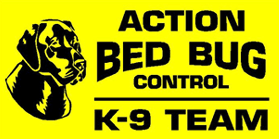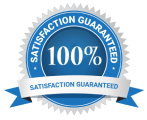Flexible Scheduled Service Dates

Action can tailor a service plan for your company based on your needs. Utilizing the latest and most effective measures for pest control, Action will provide cost effective relief from pest invasions.
Contact us for a free quote or more information about our Commercial Pest Control Services.
 Industry Expertise:
Industry Expertise:
- Food & Beverage – Distribution, Processing, & Retailing
- Education Facilities – Private Schools, Local Schools, Colleges, & Universities
- Health Care – Nursing Homes / Hospitals
- Hospitality – Hotels / Motels
- Government
- Manufacturing
- Property Management
Action is a Nationally Recognized Leader in Bed Bug Dog Inspections and Bed Bug Control
Commercial Pest Control in NJ – www.actionpestcontrol.com
Q: What is Commercial Pest Control?
A: A commercial applicator uses or supervises the use of restricted use pesticides for any purpose or on any property not covered by private applicators.
Standards for Certification of Commercial Applicators
Commercial applicators must demonstrate practical knowledge of the principles and practices of pest control and the safe use of pesticides. Competence must be determined by a written exam and, as appropriate, performance testing in the following areas:
• Label and labeling comprehension
• Safety
• Environment
• Pests
• Pesticides
• Equipment
• Application technique
• Laws and regulations.
Q: What is the best way to stop pests in the Food and Restaurant Industries?
A: Controlling pests in a food industry facility is essential in order to minimize the transmission of food-borne illnesses caused by microbial contamination. Effective pest control is based on:
• Preventing entry (exclusion),
• Removing nesting/breeding sites (harborage), and
• Eliminating potential sources of food and water.
Pest control requires vigilance inside and outside the plant. This includes:
• Maintaining the building to prevent entry of pests.
• Maintaining the grounds to ensure proper sanitation and remove harborage for pests.
• Following good manufacturing practices to ensure proper in-plant sanitation.
Significant Pests in the Food Industry
The food industry is concerned with filth from pests—including insects, rodents, birds, and bats—that may adulterate or contaminate human food. These pests are considered significant in the food industry because:
• They may carry food-borne pathogens.
• Their presence may be an indicator of infestation in the facility.
• They may adulterate food products with foreign substances such as insect eggs, larval skins, frass, rodent hairs, and waste that are at the very least aesthetically objectionable in food.
• They may cause millions of dollars worth of damage.
Filth is any contaminant that, because of its repulsiveness, would not normally be eaten. Filth may or may not be an actual health hazard; its mere presence in a product will render that product adulterated.
Control Measures for Grounds
Controlling pests in a food processing facility begins on the grounds surrounding the facility. The following practices can reduce infestation on the facility grounds:
• Keep garbage containers and dumpsters clean and covered. Remove trash on a timely basis.
• Cut weeds or grass, remove fallen trees, and eliminate debris around buildings or structures that may offer a breeding place for pests.
• Clear drains and install drainage for wet areas that may contribute contamination to food by seepage, foot-borne filth, or providing a breeding place for pests.
• Inspect roofs and walls and remove bird nesting sites. Install bird netting or spikes to discourage birds from nesting.
• If rodenticides or insecticides are used, ensure that all precautions are taken to avoid potential contamination of food products and they are being used in accordance with the label.
• Have the grounds and building inspected for pests on a documented regular schedule.
Buildings
Exclusion is the best way to control pests inside the food processing or storage facility. The following practices can help prevent pests and their associated pathogens from entering the building:
• Use self-closing doors and install door sweeps on facility doors.
• Keep doors closed. For doors that must remain open, such as loading dock doors, install air curtains, screens, or plastic strip curtains. Ensure bottom door sweeps are in good repair.
• Ensure that the facility airflow is positive at all entry points, which allows insects to be pushed out.
• Ensure that windows are screened, screening is in good repair, and screens are kept closed.
• Caulk and seal cracks, especially those at junctions between the floor and walls and around wiring, drain pipes, vents, and flues. Repair all wall openings leading to the outside.
Source: DEP, EPA, USDA
www.actionpestcontrol.com
Q: What is Integrated Pest Management (IPM)?
A: Integrated Pest Management Plans for Businesses
Integrated Pest Management (IPM) is a common sense way for commercial businesses to address its pest problems. This method of pest control focuses on three basic techniques:
- Inspecting for pests
- Identifying pests
- Treatment
IPM bases its pest control recommendations on each individual business’ unique needs. Action Termite and Pest Control will not use a “one size fits all” approach. Whether sealing cracks, removing a food or water source or employing product treatments, integrated pest management is about finding the best options to get rid of infestations.
The damage done by pests can be extensive, from structural deterioration and contaminated product, causing facilities to lose money, to health issues, spreading illnesses that can make consumers sick. When thinking about the pests that most typically invade food facilities, cockroaches, rodents, flies, and stored product pests are most likely the first few to come to mind. However, pest birds are frequent threats to food facilities, too. And if birds aren’t properly managed, they will waste no time in establishing their flocks and inflicting harm to property, product, and people.

Call 1-800-920-0906 Or Email: info@actionpestcontrol.com
ACCURATE PROVEN TRUSTED
www.actionpestcontrol.com




